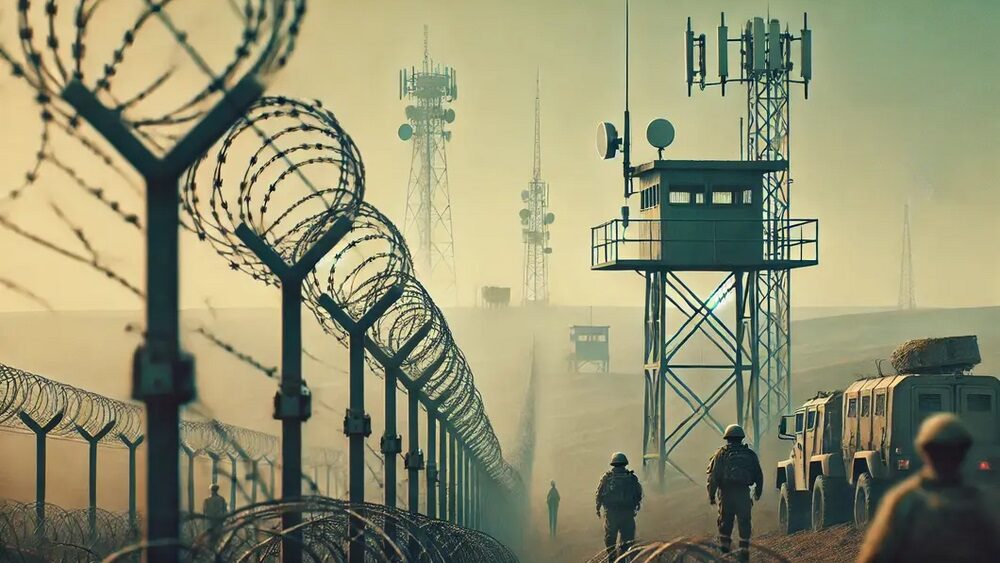Israel Can Deter Hezbollah and Strengthen the Border
Maariv, Israel, September 22
About 4,000 Hezbollah members were injured during the pager attack, but the ramifications are far more extensive. Since the incident, Hezbollah has reverted to using cell phones, placing callers at risk, and radios susceptible to interception, while relying mainly on wireline communications that are also vulnerable to eavesdropping. As a result, in the short term, the organization is incapacitated from waging war with the coordination of a conventional army. The stances of the dual leaderships in Beirut and Tehran suggest that the pager explosions and the assassination of commanders in the Dahieh will not propel Hezbollah and Iran into a full-scale conflict. Ismail Haniyeh’s assassination delivered a significant blow to the mullah regime. The mood in Tehran was markedly angrier than after the killing of the Iranian general in Damascus, which prompted the missile and drone attack on the night of April 14. On the surface, Iran’s immediate and powerful retaliation against Israel seemed inevitable. However, beneath the surface, there was a nuanced debate over such a response. By early August, the stance of the new president, Masoud Pezeshkian, leaked, indicating that direct action against Israel would severely harm the Iranian economy. This is precisely why Khamenei orchestrated Pezeshkian’s election. Khamenei required a pragmatic president and government to advocate for a moderate policy against hardliners. This allows Khamenei to position himself as an arbitrator rather than a dictator. As of mid-September, the promise of a harsh Iranian response persists but is now accompanied by the assertion that Iran will select the appropriate timing, location, and nature of retaliation. There is a consensus that a direct military response currently contrasts with Iran’s strategic interests. Three main reasons are inferred from statements by senior officials. First, there is the risk of damage to the Bandar Abbas oil port, crucial to government revenues. Second, relations with Arab neighbors who supported Israel in April could deteriorate. Third, one of the two American aircraft carriers has departed the region, but the other remains, making a military confrontation with the United States unwise. The assassination of Ibrahim Aqil, the commander of the Radwan Force, in Dahieh, compounds the uncertainty. Nonetheless, Iran’s official stance remains cautious. Khamenei declares that the “cancerous tumor” Israel will be eradicated, yet there is no commitment to direct Iranian action. Moreover, for years there has been an understanding between Hezbollah and Tehran that events in Lebanon stay in Lebanon unless Hezbollah’s very existence is threatened, which is not the current situation. Regarding Hezbollah, the sentiment is that Israel should face repercussions, but not to the extent of igniting a full-scale war. Hezbollah recognizes its capacity to inflict significant damage on Israel but understands that in an all-out war, life is safer in Haifa than in Beirut and South Lebanon. It is likely that the recent assassination has increased pressure from commanders on Nasrallah to respond with severe fire across Israel, but Nasrallah will likely aim to avoid this. Hezbollah seeks a ceasefire in Gaza that would also enable them to halt hostilities. Should a ceasefire occur, the credible threat of an Israeli attack with American backing may convince Hezbollah to withdraw beyond the Litani River. From that point forward, it will be the personal responsibility of the Israeli prime minister to bolster the permanent presence of the IDF in the north and prevent the Radwan Force from advancing back to the border through defensive actions. This is the only viable way to ensure the return of Israeli residents to their homes along the border communities. —Amatzia Baram (translated by Asaf Zilberfarb)
Give the gift of hope
We practice what we preach:
accurate, fearless journalism. But we can't do it alone.
- On the ground in Gaza, Syria, Israel, Egypt, Pakistan, and more
- Our program trained more than 100 journalists
- Calling out fake news and reporting real facts
- On the ground in Gaza, Syria, Israel, Egypt, Pakistan, and more
- Our program trained more than 100 journalists
- Calling out fake news and reporting real facts



